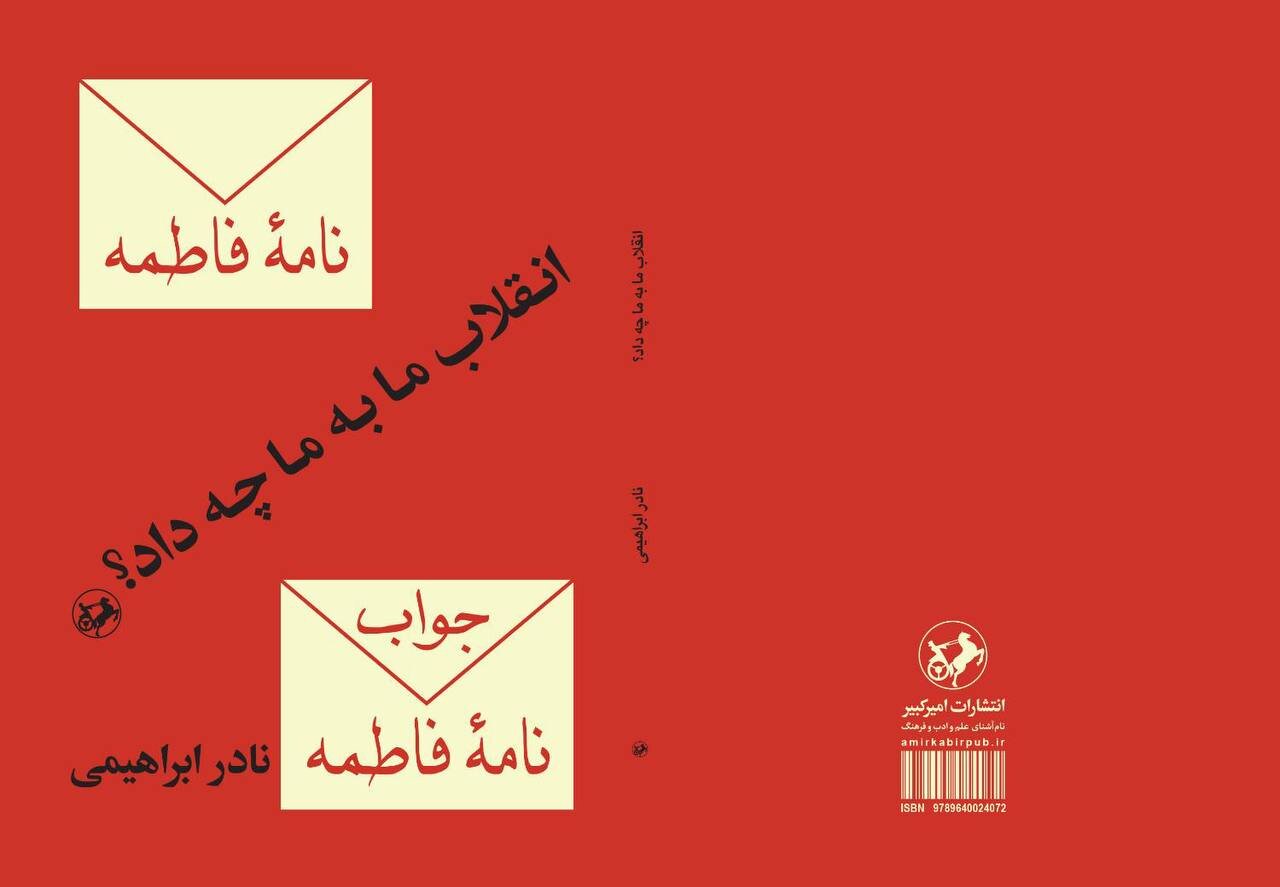"What did our revolution give us?"
A book that echoes the voice of lost generations

TEHRAN – The history and revolutions of a country are not just identity cards for a nation but also mirrors reflecting its ideals, dreams, and sometimes its failures.
In every revolution, people fight with hopes for change and justice. But over time, a significant question arises: Have those ideals been realized? Are the people any different, or do their prominent concerns like class gaps and inequalities persist? These questions, which have troubled generations, remain central to our society.
The book "What did our revolution give us?" by Nader Ebrahimi delves deeply and honestly into one of the biggest questions of modern Iranian history: Have the ideals of the 1979 Islamic Revolution come true?
Narrated through the eyes of Fatemeh, a girl from the poorer parts of Tehran, it reflects the dreams of a generation shaped by social and economic realities. Ebrahimi listens attentively to Fatemeh's and her peers' concerns and critically examines the present through an honest dialogue.
Fatemeh, from a poor family struggling to make ends meet, writes to the author about social conflicts, class inequalities, and the gap between ideals and realities. With a sharp and candid tone, she writes about various aspects of the revolution and raises her unanswered questions. On page 13, she poignantly remarks: "In those expensive and lavish neighborhoods, there's something dirty that isn't seen; something dirty that I believed the revolution, with its big vision, would see and clean up. But the revolution did not see the dirt, nor did it dispose of it." This sentence captures her disappointment with the fact that some of the ideals of the revolution remained only in slogans and promises.
Conversely, Nader Ebrahimi, as an intellectual studying the Islamic Revolution, tries to explain the complex realities of society. He believes revolution is a gradual process, and fundamental changes take time. This response may seem too abstract and detached for Fatemeh and her peers, who have protested against poverty and inequality. On page 67, he says: "The imagination of the revolution is not the revolution itself. And now, in the hope that the meaning of illusion becomes clearer, I tell you: The day of the revolution is not the era of the revolution. Fatemeh! Don't think about the day of the revolution, think about the era of the revolution."
Ebrahimi's book, in the form of two letters, juxtaposes two perspectives. Fatemeh's language is simple and sharp, speaking of social pains and gaps. On page 15, she writes: "Your children want multi-layer cakes for their birthdays, while we want leftover bread to survive." This sentence vividly depicts the contrast between the lives of the poor and the rich. On the other hand, Ebrahimi's prose is calmer and more argumentative. On page 28, he says: "The results of our revolution will soon become clear. Some things will be resolved quickly. But some things will take time... slowly... slowly..."
Another poignant part of the book examines the status of women in society and highlights the vulnerability of women in the lower social strata, a reality that still exists today, albeit in a different form. "Is there such a shortage of women for you that you can't even pass by a thin, sickly-looking girl like me?" Fatemeh writes on page 41.
Ebrahimi’s latest book isn't just a historical account; it speaks to an ongoing reality. This book tackles issues like class contradictions, gender inequalities, and the gap between ideals and actions that emerged after the revolution. In this context, Fatemeh, with her pain and protests, embodies the voice of a new generation grappling with the same questions, divisions, and injustices her kind did before the revolution. Ebrahimi's work refuses to accept indifference and challenges you on every page: Are the new Fatemehs still searching for their answers?
